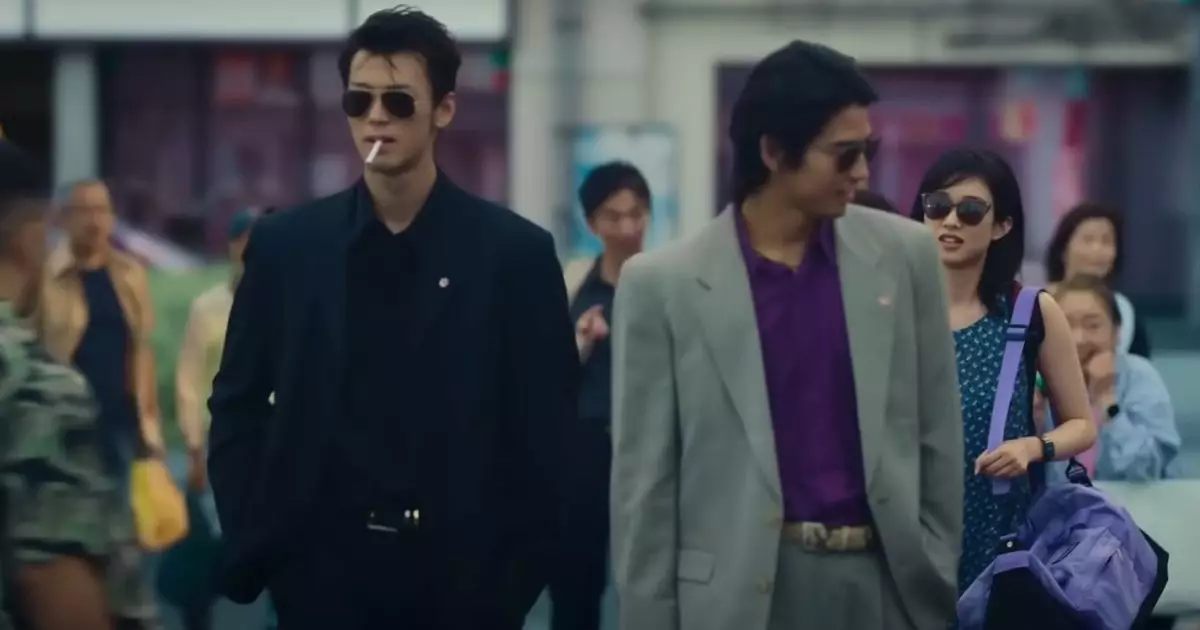With a new trailer released for the upcoming Amazon adaptation of “Like A Dragon: Yakuza,” fans are caught in a whirlwind of excitement, skepticism, and curiosity. As a long-time aficionado of the Yakuza series, I feel compelled to voice both enthusiasm and caution. The series has enthralled players with its mix of serious narratives and comical side quests, and transitioning such a unique essence to the small screen is no small feat. The trailer hints at a dramatic interpretation, leaning towards a darker, more realistic portrayal separate from the eccentricities inherent in the video games. Yet, the challenge remains: can it faithfully capture the soul of Yakuza while appealing to a broader television audience?
Cinematic adaptations often tread a precarious path. The established lore and iconic characters of Yakuza possess a rich tapestry of interwoven narratives steeped in Japanese culture, crime drama, and poignant moral dilemmas. Fans have grown attached to the absurdities of everyday life in Kamurocho, from karaoke sessions to bizarre side missions. The trailer, however, gives the impression that the series may bypass many of these beloved quirks in favor of a straightforward narrative involving crime and redemption. Such a shift from the absurd to the serious raises questions about authenticity: will the show strip Yakuza of its unique charm, or will it find a way to blend the best of both worlds?
The official synopsis presents a dual-timeline narrative set in 1995 and 2005, highlighting Kiryu’s journey from a youthful heist to a comeback steeped in danger and tension. This approach does hint at the potential for layered storytelling, but the real challenge lies in balancing the gravity of these themes without losing the eccentricity that defines the Yakuza experience.
A Struggle Between Past and Present
In any adaptation, understanding the core motivations of characters is paramount. Kiryu, Nishiki, Yumi, and Miho are not just conduits for action; they encapsulate relationships bound by loyalty, betrayal, and personal growth. If the series neglects this depth in character development, it risks becoming a mere action-drama devoid of emotional resonance. The shifting dynamics from their youthful aspirations to their turbulent adult realities will need to be articulated with grace to engage viewers beyond sheer spectacle.
On that note, the show’s premise ignites curiosity about the portrayal of Kamurocho—once a playground for Kiryuu’s adventures, now a web of dangers populated by powerful Yakuza factions like the Dojima Family. The show’s ability to accurately depict the underbelly of this vibrant yet dangerous world will be crucial. It invites the question: can Amazon’s portrayal of Kamurocho evoke the same visceral energy felt in the games, where every alley is laced with intrigue and every encounter can lead to a plethora of outcomes?
Amid all this speculation, I find myself pondering the unexpected turns the series might take. The humor that permeates the games is often rooted in the bizarre; moments akin to “The Florist Of Tsai” or Kiryu wielding a bike in combat provide levity and humor that balance darker themes. If the show were to forego these elements entirely, it risks losing an opportunity for moments of humor that could enrich the storyline and provide necessary breaks from heavy themes.
Interestingly, the narrative suggests moments where traditional Yakuza elements, such as life lessons learned through bizarre encounters, could still find their way into the mix. The prospect of introducing quirky side characters, perhaps akin to the likes of Mr. Masochist, offers up possibilities for memorable storytelling while still echoing the themes of moral inquiry and camaraderie. However, striking a balance between these eccentricities and the predominant tone will be critical.
The Road Ahead
Ultimately, the adaptation of the Yakuza universe into a television series presents both a challenge and an opportunity. As the series unfolds, I remain cautiously hopeful. The creative decisions made in its execution will dictate whether it transcends mere entertainment to become a tribute to a beloved franchise. As viewers gear up for this new chapter, we hold our breath—awaiting to see if the resulting narrative will successfully meld the thrilling chaos of the original with a more profound narrative arc. Only time will reveal whether Amazon’s “Like A Dragon: Yakuza” can capture the essence of a game, beloved for its intricate storytelling and engaging absurdity.

